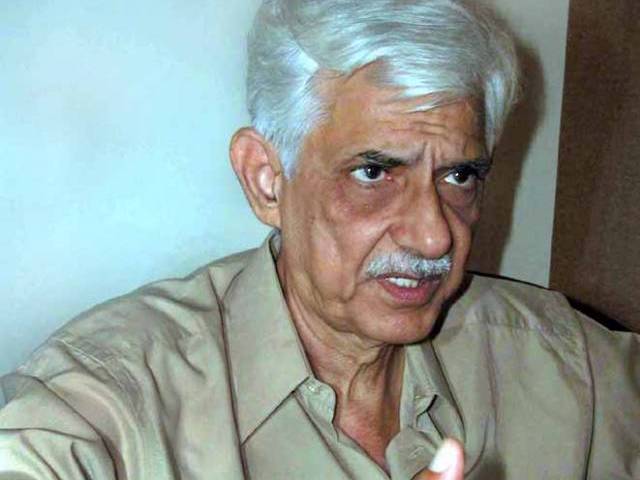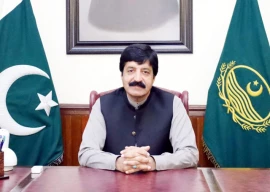
This was stated by Senator Taj Haider of Pakistan Peoples Party (PPP) who was speaking on 'The challenges of federation in Pakistan' at a seminar organised by the Shaheed Mohtarma Benazir Bhutto Chair at the University of Karachi on Friday.
Addressing students at the arts auditorium, the chairperson of Senate Committee on Pakistan-China Economic Corridor said the Pakistan movement was in fact a movement for the federation by the people living in the Muslim-majority provinces, who feared losing their rights in case Congress came to the power at the centre.
Quoting the Jinnah papers, Haider said Quaid-e-Azam Muhammad Ali Jinnah wanted Sindh to have its own constitution.
"Jinnah wanted every Muslim-majority province to have its own constitution," he claimed. "However, it's sad to see that today we are witnessing a clash between the centre and provinces because those who ruled Pakistan before the 1970s always put their weight behind a powerful centre and had no role in the Pakistan movement. Their only qualification was that they were loyal to the British Raj."
Senator Haider believed that the root cause behind the challenges to the federation was the nexus between the country`s military establishment and Western imperialists; a relation formed because of the state`s defence spending. Taking a jibe at the courts, the senator maintained that the judiciary has played a big role in damaging the federation of the country, adding "the judiciary of Pakistan has always validated dictators and even sanctioned what the dictators had not demanded."
He said that after every military takeover it is the small provinces that are deprived the most, adding that if the state wants to change the status quo it has to look after the deprived people of smaller provinces. The senator lamented over what he called the "deliberate attempts by the centre to roll back the 18th Amendment." "The 18th Amendment has not been implemented in its true letter and spirit," he said further.
Published in The Express Tribune, August 20th, 2016.

















COMMENTS
Comments are moderated and generally will be posted if they are on-topic and not abusive.
For more information, please see our Comments FAQ